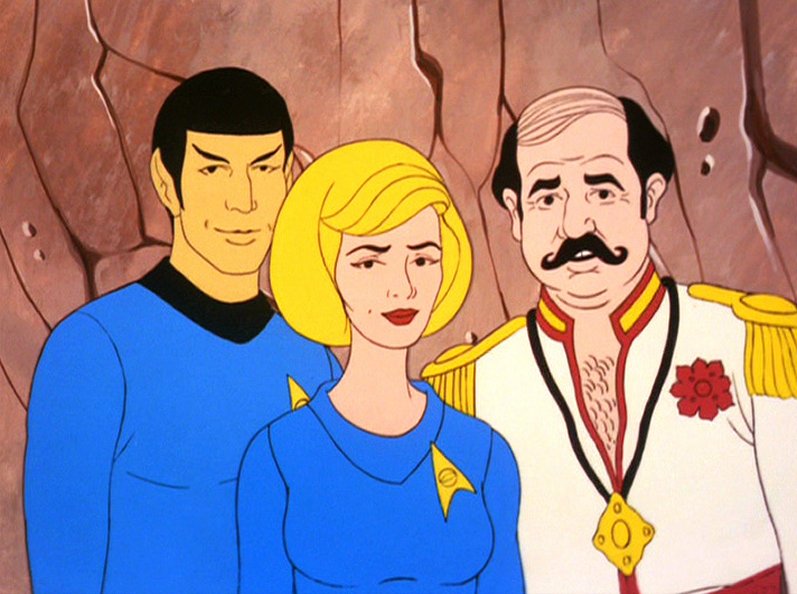rating: ***
Memory Alpha summary
In this sequel to "Shore Leave," the series ends up more relevant to a far different matter, the franchise theme of the emerging sentience of machines. Can you say Data?
 |
| via The Viewscreen |
The planet that was like a precursor to all the malfunctioning holodeck episodes returns, complete with Alice's Wonderland.
Unlike the other sequel episodes in the series, however, "Once Upon a Planet" has a distinctively new story to tell, about the planet post-guardian, with the mechanism that allows its basic function to operate running on its own. No, this is not
Next Generation's "Arsenal of Freedom" redux, but rather much more akin to
The Motion Picture or even
Next Generation's "Emergence" (which just
happens to also feature a malfunctioning holodeck).
The basic idea of technology taking on an intelligence of its own is one of those fears that permeates our perception of the future, the robot uprisings featured in
The Matrix and
The Terminator. As usual, Star Trek has a broader interpretation in mind. Things look grim in
The Motion Picture until humanity actually
merges with the machine in question (which has long given speculation to how much of a connection to the later Borg there exists in the film), while in "Emergence" and "Upon a Planet" a dialogue between man and machine suffices.
"Planet" tackles the nature of the transition point directly: the moment of change occurs when the original programming is superseded by a change of circumstances.
Voyager played out a different scenario in "Prototype," in which a robotic army plays out the familiar "Let That Be Your Last Battlefield"/"Chosen Realm" scenario, a war of attrition that is the result of the worst possible outcome from a failure to change. In "Planet," the machine listens to reason after initially assuming, as in
Motion Picture, that it's the Enterprise itself that is the relevant entity (just as it's the ship in "Emergence" that produces new life).
It's an ideal story for the series to explore, something that might have seemed too outlandish in live action at the time, a few years ahead of
Motion Picture itself (which, remember, was also a version of the earlier "Changeling"), which is still too hard to swallow as a near-purely intellectual exercise for fans more accustomed to more visceral franchise experiences (a peculiar dichotomy for a phenomenon that has always walked that fine line and draws equal support from both sides).
There's a small chance you will want to watch this as a spotlight for Uhura, although "Planet" doesn't indulge too much in the potential it sets up in that regard. If anyone ever revisited this story, they could easily picks up on a number of possibilities, including the "Changeling" connection (an episode where she loses her memory and has to have it recreated to similarly limited exploration).
four quarter analysis
franchise * series * essential * character
notable guest-stars:
Nichelle Nichols
Majel Roddenberry
James Doohan



